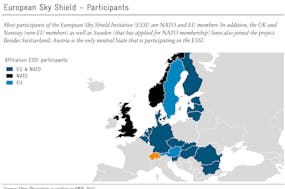Switzerland’s cantons are assiduous in protecting their cultural peculiarities and, by extension, their legislative powers. So there can be big differences in how they conduct and regulate economic and social policy. Avenir Suisse’s annual Freedom Index monitors these discrepancies by comparing regulators’ activities in 29 categories of economic and civil liberties.
The Index is not intended as a tool for blank standardization – just the opposite. By highlighting cantonal differences in comparable policies, it offers cantons the opportunity to learn from each other (assuming they’re interested).
Learning from one’s neighbor
The Freedom Index shows cantons like Aargau and Schwyz often reach their regulatory goals with a lighter touch than their counterparts. Highlighting best practice can certainly increase the pressure for other cantonal policymakers to change. But regional peculiarities should always be taken into account: in other words, what works in Schwyz will not necessarily work in Bern or Valais.
However, there are some quick wins for cantons with similar characteristics. As the latest Index shows, the canton of Uri (ranked a lowly 25th in terms of freedoms) could take a leaf out of neighbouring Schwyz’s (ranked 2nd) or Glarus’s (ranked 4) books. Both cantons – geographically close and broadly comparable, could be useful role models. Both are more business friendly, have less restrictive restaurant fees and longer shopping hours than Uri.
Cultural similarities and other historical connections form natural affinities in Swiss politics. So French speaking cantons could follow the example of Neuchâtel (ranked 11th ) and Jura (ranked 6th) regarding innovative labor market regulation, among other things. Other questions thrown up by the data include why Neuchâtel and Jura need fewer collective employment contracts to achieve their labor market objectives, or why they have a significantly lower public expenditure quota.
Location competition is crucial
Inter-cantonal competition and benchmarking can help a canton to become more attractive, as its administrators must constantly rethink and reposition to keep up. That’s evident not just for well known factors, notably tax, but also for broader cantonal rules governing everyday life and business, as, for instance, the time taken to obtain a building permit, or the options employees have to combine family and career.
The fact that Switzerland’s federal system can be a test bed for ideas and solutions is not new. The canton of St. Gallen, for example, pioneered the “debt brake” – the mechanism automatically limiting borrowing – which it introduced as long ago as 1929. Since then, almost all the other cantons and, since December 2001, the Confederation itself, have followed suit. Even the federal German government has introduced a similar tool, showing Swiss ideas can also travel!





